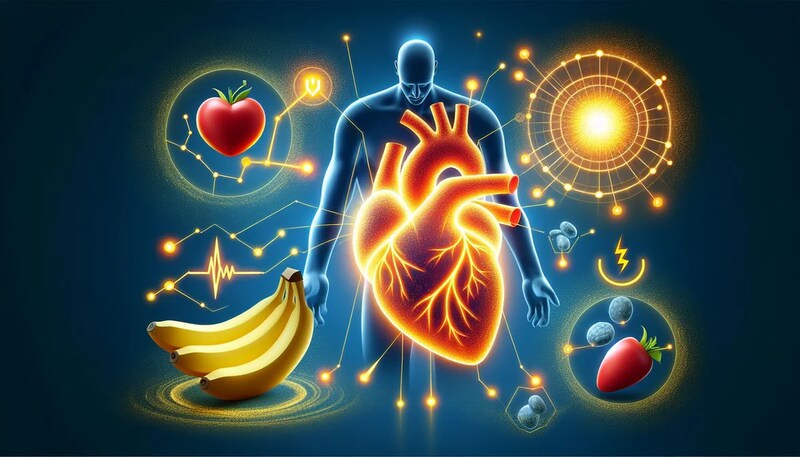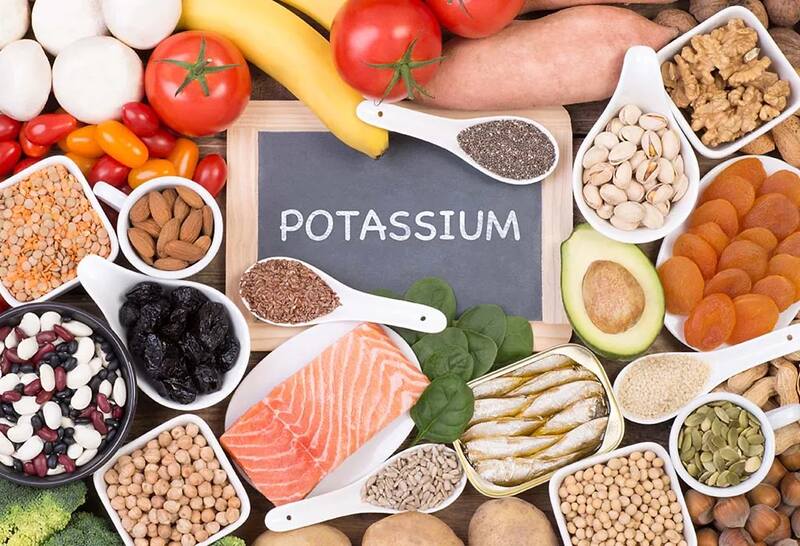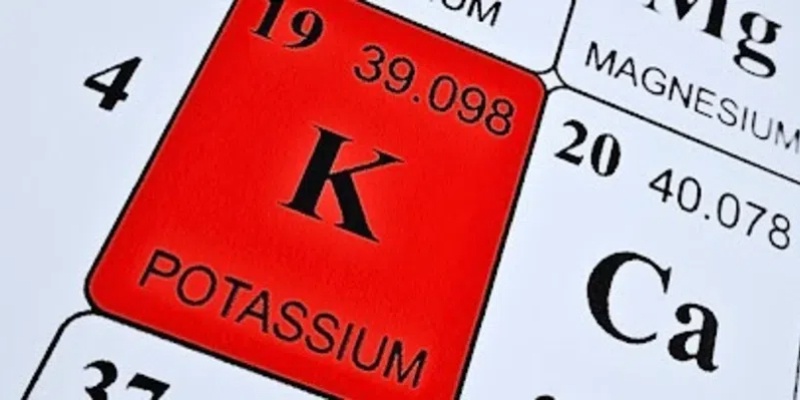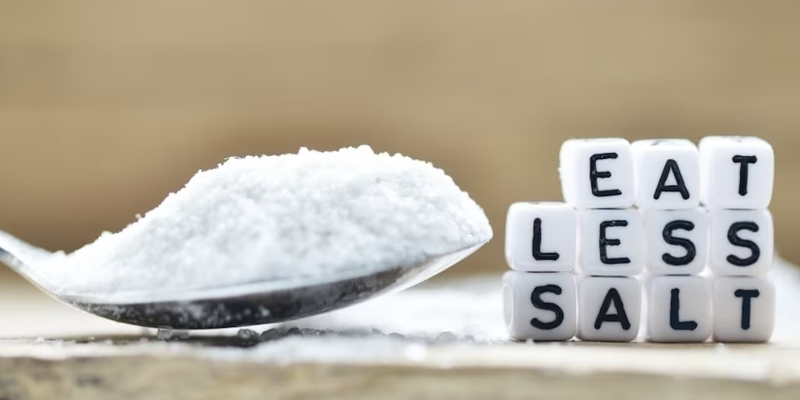Advertisement
Potassium is an important mineral that has a very vital function in different body functions. Often, its presence isn't noticed but it affects everything from how muscles work to the healthiness of the heart. Potassium works as an electrolyte that helps manage the balance of fluid, nerve signals, and muscle contractions. If you don't have enough potassium, it can affect important body functions and might cause health problems. This article will talk about the good things that come from having potassium, why it is so necessary for your overall health, and ways to add more foods high in potassium into what you eat regularly.

Potassium is largely famous for its beneficial impact on heart health. It has a key role in managing blood pressure as it balances sodium effects inside the body. When levels of sodium are too high, water can be held back, this boosts blood pressure and creates additional stress on the heart. But, if you take enough potassium, it can help the body to balance these impacts and regulate blood pressure normally. Research has demonstrated that people who incorporate more potassium in their diet generally have downgraded levels of blood pressure which cuts down chances of heart attacks and strokes. This fundamental mineral backs up functionally the entire cardiovascular system making it an important part of a diet good for heart health.
Potassium is very important for the working of muscles, especially during physical tasks. It has a critical function in keeping the right balance of fluids inside and outside cells so that muscles can contract and relax well. If there is not enough potassium, it could cause muscle weakness or cramps, to serious conditions such as paralysis. People who do sports and those doing physical activity frequently need more potassium. This is because it helps muscles work properly and recover faster. Also, if you get enough potassium, this can lessen the chances of getting muscle cramps after exercising. So, for people wanting to improve how well they perform and how fast they recover afterward, having enough of this mineral is very important.
Potassium's function as an electrolyte is very important for keeping the balance of fluids in our body. Electrolytes such as potassium make sure that fluids move into and out of cells, this helps avoid dehydration and supports cell functions. If potassium balance gets disturbed, it could cause dehydration or an imbalance of liquids, leading to conditions like tiredness, headaches, and a feeling of dizziness. Potassium collaborates with other electrolytes like sodium and chloride to maintain the body's fluid balance. This is crucial for individuals who reside in warm weather, participate in tough workouts, or have health issues affecting their fluid amounts. Ensuring a sufficient intake of potassium can help keep your body appropriately hydrated.
Potassium is frequently linked with the well-being of the heart and muscles, but it also contributes to keeping our bones strong. It works by balancing out acids in our bodies which may cause harm to bones if not controlled properly. Eating a lot of acidic foods like meat or dairy can result in calcium being drawn from the bones to tackle this acidity issue. Nonetheless, eating foods with a lot of potassium helps the body to keep bone density and strength. Studies have confirmed that people who ensure they get enough potassium can reduce their chance of getting osteoporosis as they grow older. So, it's not just important for immediate health, potassium is also very significant in keeping bones strong over time.
Besides its importance for heart and muscle operations, potassium is crucial for correct nerve functioning. Potassium aids in the conduction of nerve messages that are vital for transmitting signals from the brain to other parts of the body. Nerve cells depend on a suitable equilibrium between potassium and sodium to efficiently send electrical signals. If levels of potassium go too down, it might impact nerve working badly. This situation could cause feelings like prickling or loss of feeling and in very bad cases, harm to nerves. If you keep eating food that has enough potassium content then your nervous system will continue functioning at its best level; this helps for better communication between the brain and body.

Potassium is very important for many body functions, but lots of people do not eat enough of this necessary mineral. Potassium can be found in different types of food, so it's simple to add it to a balanced diet. Fruits like bananas, oranges, and avocados are famous as sources of potassium. Spinach, potatoes, and sweet potatoes are vegetables that contain a lot of potassium. They can be very good food choices for people who want to add more potassium to their diet. Foods such as legumes, nuts, seeds, and fish also have lots of this mineral. By including these foods rich in potassium into your meals regularly, it will not be hard to meet the amount needed by your body daily while taking advantage of many health benefits from having sufficient potassium levels.
Potassium is very important for many body functions, but lots of people do not eat enough of this necessary mineral. Potassium can be found in different types of food, so it's simple to add it to a balanced diet. Fruits like bananas, oranges, and avocados are famous as sources of potassium. Spinach, potatoes, and sweet potatoes are vegetables that contain a lot of potassium. They can be very good food choices for people who want to add more potassium to their diet. Foods such as legumes, nuts, seeds, and fish also have lots of this mineral. By including these foods rich in potassium into your meals regularly, it will not be hard to meet the amount needed by your body daily while taking advantage of many health benefits from having sufficient potassium levels.
Advertisement

By Alison Perry/Oct 10, 2024

By Georgia Vincent/Oct 31, 2024

By Elva Flynn/Nov 13, 2024

By Nancy Miller/Oct 10, 2024

By Juliana Daniel/Dec 07, 2024

By Madison Evans/Dec 12, 2024

By Darnell Malan/Oct 09, 2024

By Korin Kashtan/Dec 12, 2024

By Christin Shatzman/Sep 28, 2024

By Paula Miller/Dec 09, 2024

By Nancy Miller/Oct 12, 2024

By Christin Shatzman/Sep 27, 2024